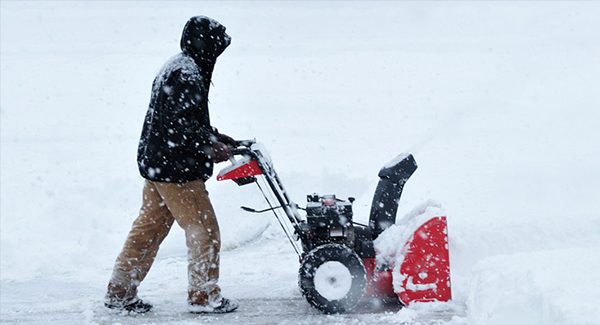Winter maintenance and preparation are critical aspects of condominium, homeowner (HOA), and townhome association management for communities impacted by cold weather, freezing temperatures, and snow. Board members, community leaders, and property managers that proactively address their winter checklist can minimize risks, maximize safety, and work to ensure the comfort of residents throughout the colder months.
Autumn preparation
Being proactive is key. A busy fall season can lead to a less hectic winter. Tasks may include:
- Maintaining association landscaping and common areas.
- Cleaning leaves out of drainage areas and gutters.
- Draining and removing irrigation equipment before the ground freezes and gets covered in snow (ex. hoses and sprinklers).
- Check swimming pools by draining water and assessing the condition of equipment (ex. motors, pumps).
- Winter usually brings earlier sunsets. Accordingly, inspect association lighting (ex. replace broken or faulty lights, inspect emergency lighting).
Interior common areas
Create an inspection schedule to:
- Address outstanding and regular maintenance issues
- Address seasonal mechanical maintenance issues including heaters, thermostats, furnaces, dehumidifiers
- Replace filters
- Check air ducts
- Check interior doors and windows
Frozen Pipes
Frozen pipes in community association are an unfortunate and common place occurrence. Pipe bursts, leaks, the failure to maintain proper heating, and malfunctioning appliances can result in significant property damage and financial costs.
The association’s winter checklist should include inspecting pipes in entryways, common hallways, basements, utility rooms, and fire sprinkler lines for potential emergencies.
In the event of a burst pipe, the association should work with their professional team (ex. management, maintenance, insurance) to identify the source of the burst pipe, extent of the damage, areas affected, determine responsibility, and how to proceed with a potential insurance claim.
The association’s attorney can assist by navigating legal issues and reviewing the governing documents to determine the association’s liability versus unit owner responsibilities.
Exterior common areas
Create an inspection schedule to:
- Inspect the roof, look for missing shingles, cracks, and/or structural damage
- Look for cracks in walkways, recreational courts (basketball, pickleball, tennis), doors and windows
- Inspect association parking lots, garages, sidewalks, and roadways
- Store patio furniture and landscaping equipment (ex. lawnmowers, watering hoses), etc. to prevent damage from exposure
Snow removal vendors
Associations should hire a reputable snow removal company to ensure timely, effective, and liability-reducing snow/ice management for the safety and accessibility of their communities.
Prior to hiring a snow removal vendor, the association’s attorney should review the proposed contract to:
- Outline specific start and end dates
- Define detailed areas that are to be plowed, shoveled, and/or cleared
- Confirm licensing and bonding
- Clarify Insurance requirements
- Identify contact information and availability to address issues (ex. melting snow, ice formation)
- Address issues including property damage and negligence
Legal resource
Proactive planning and action can be less costly than dealing with a winter emergency repair. Board members and community association managers should take preventive measures to communicate with residents, minimize liability, and address potential maintenance issues. Hopefully these considerations will allow associations to foster a well-prepared and resilient community before the winter season begins.
Do not hesitate to contact our law firm if KSN can assist your community association in reviewing vendor contracts, updating governing documents, owner disputes, and other legal concerns. Please call 855-537-0500 or visit www.ksnlaw.com.
Since 1983, KSN has been a legal resource for condominium, homeowner, and townhome associations. Additionally, we represent clients in real estate transactions, collections, landlord/tenant issues, and property tax appeals. We represent thousands of clients and community associations throughout the US with offices in several states including Florida, Illinois, Indiana, and Wisconsin.
Please note the material contained in this article is for educational and informational purposes only and does not constitute legal advice. No attorney-client relationship is established by your review or receipt of the information contained in this article. You should not act on the information discussed in this article without first obtaining legal advice from an attorney duly licensed to practice law in your State. While KSN has made every effort to include up-to-date information in this article, the law can change quickly. Accordingly, please understand that information discussed in this article may not yet reflect the most recent legal developments. Material is not guaranteed to be correct, complete, or up to date. KSN reserves the right to revise or update the information and statements of law discussed in the article law at any time, without notice, and disclaims any liability for your use of information or statements of law discussed on the article, or the accessibility of the article generally. This article may be considered advertising in some jurisdictions under applicable law/s and/or ethical rules/regulations. © 2024 Kovitz Shifrin Nesbit, A Professional Corporation.

